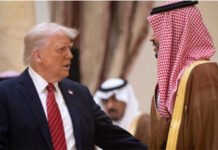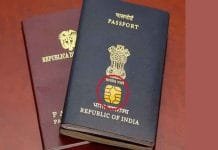INVC NEWS
UAE and Saudi Arabia – : Pakistan finds itself in dire straits as it grapples with political instability and an economic crisis, leading even its allies, the United Arab Emirates (UAE) and Saudi Arabia, to express their concerns. The arrest of Prime Minister Khan on corruption charges has further exacerbated the political chaos, resulting in violent protests across the country. This turmoil has raised alarm bells among Pakistan’s Gulf allies, particularly the UAE and Saudi Arabia, who had previously pledged financial assistance.
The root cause of Pakistan’s political and economic challenges lies in its precarious financial situation. The country is burdened with a staggering external debt and is struggling to service its dollar-denominated loans, given the prevailing high interest rates and a stronger US dollar. In fact, the Pakistani rupee has witnessed a significant depreciation, losing half its value against the US dollar in just one year. The situation has been aggravated by soaring inflation, which recently reached a record high of 35.4 percent.
As of December 2022, Pakistan’s external liabilities exceeded $126 billion, making it increasingly difficult to manage its debt obligations. With dwindling foreign exchange reserves, the State Bank of Pakistan reported a four-year low of $6.7 billion in December. Concerns are mounting that Pakistan may default on its debts, prompting discussions with the International Monetary Fund (IMF) for a bailout package. In 2019, Pakistan had already entered into a $6 billion agreement with the IMF, followed by an additional $1 billion deal a year later.
Mohammad Sohail, CEO of Topline Securities, a brokerage house in Karachi, acknowledged that such demands for financial assistance are a routine part of the process. However, doubts remain as to whether the UAE and other partners will be willing to extend further funds amidst the growing political crisis. While China, UAE, and Saudi Arabia have made commitments to the IMF, approximately $2 billion in pending commitments raise uncertainties. Supporting Pakistan in the face of political instability poses risks for both the UAE and Saudi Arabia, given their strong commercial ties with the country. With a population of over 200 million, Pakistan is a significant market for both nations. Moreover, Pakistan’s economic turmoil may raise questions about the feasibility of the Pakistan-Gulf Cooperation Council trade deal.
The current state of Pakistan’s economy necessitates urgent measures to stabilize its finances and restore investor confidence. The government must address political unrest, implement effective economic reforms, and seek international support to navigate this challenging period. The concerns expressed by UAE and Saudi Arabia highlight the gravity of the situation and the need for swift action to avert further escalation.
















